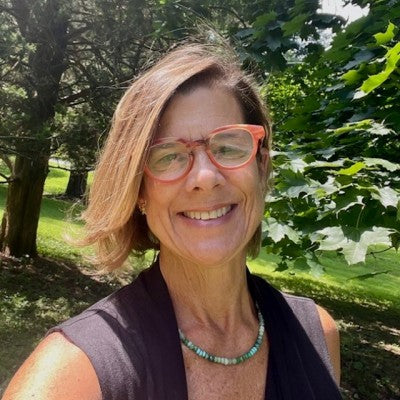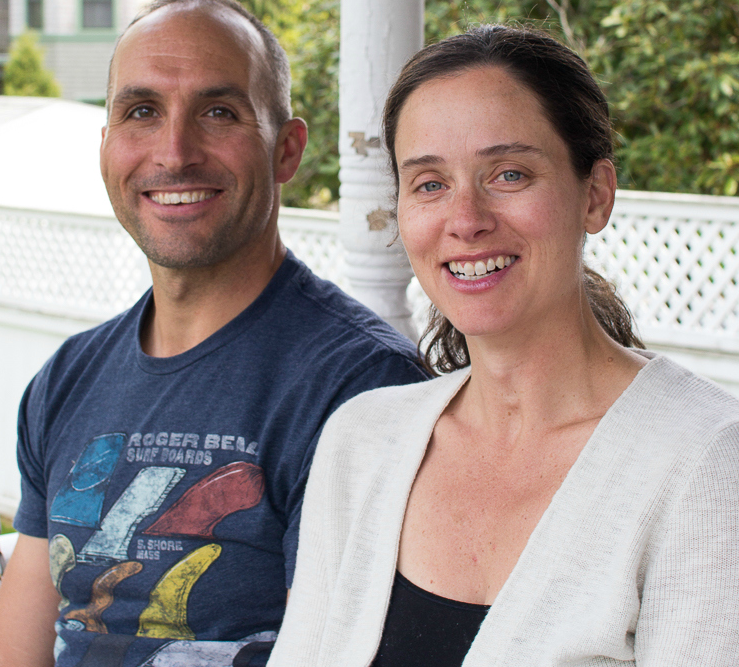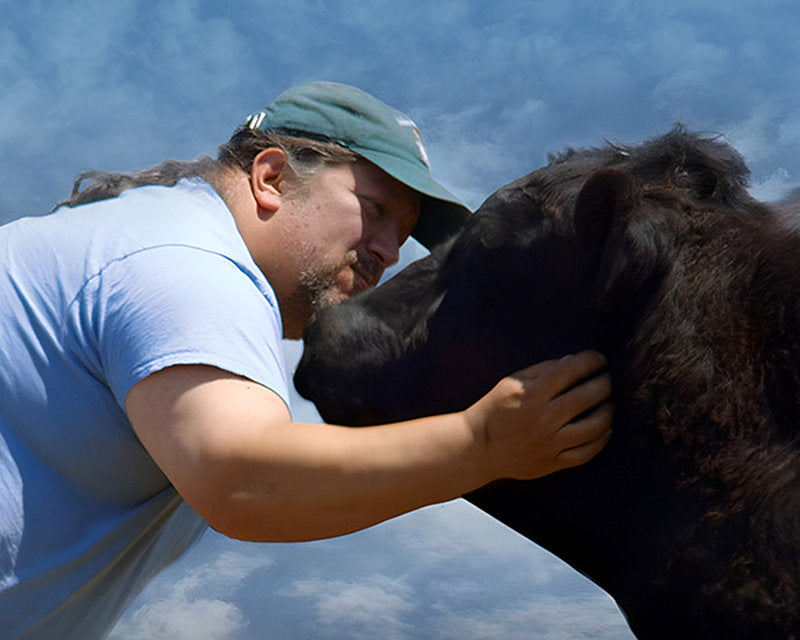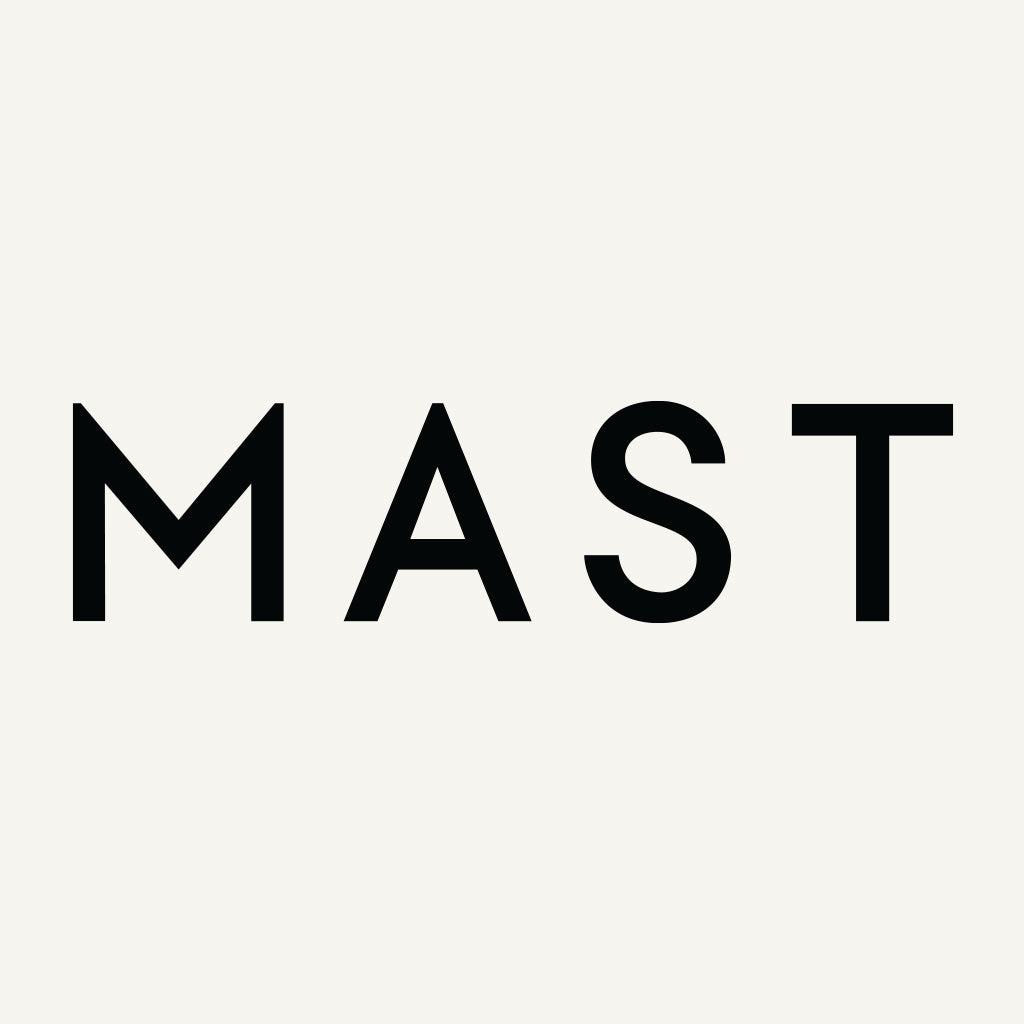A Way Forward
In conversation with Midge Iorio
For the past 14 years, Bedford 2030 has been working to reduce greenhouse gas emissions and protect the earth’s natural resources in Westchester County and beyond. The nonprofit is dedicated to addressing the climate crisis head-on. “We are working hard to make sure that we're leaving a beautiful, healthy world for the next generation and generations after,” says executive director Midge Iorio.
When the organization was established in 2009, it set a specific, aggressive goal: reduce greenhouse gas emissions by 20 percent by 2020. That’s why the founders called the effort Bedford 2020. By 2017, they had not only reached that target, but surpassed it, having reduced emissions by 44 percent. “That was partially from the work that we were doing, but also partially because New York State cleaned up the grid so much,” Midge shares.
Instead of taking their win and calling it quits, the nonprofit wrote a new climate action plan and rebranded as Bedford 2030. They’re hoping to reduce emissions by 80 percent by the end of the decade. Here, Midge shares exactly how she and her team are trying to achieve that goal and how community members can get involved.

Mast Journal: What is Bedford 2030 doing to help preserve the planet?
Midge Iorio: We focus on three different areas of action, each of which is a source of greenhouse gas emissions. The first is our buildings, which have electricity that's powered by dirty fuel instead of renewable energy and are heated with fossil fuels instead of clean heat pumps. The second is transportation, so we encourage converting from gas-powered vehicles to electric vehicles or coming up with solutions to drive less. The third is what we call rooted solutions and that's tapping into our natural resources as a climate solution.
We try to connect with everybody in the community and provide them with resources to make change. We meet people where they are—not everybody's ready to get rid of their oil burner and get an electric heat pump. We have a really wide array of programs, but the two that we're super interested in right now are coaching programs.
We have an energy coach, which is a free resource for anybody from Bedford or neighboring communities. Our coach is an expert with 30 years in building efficiency and building science. We're hiring a second coach now, too. You can make an appointment with our coach and you fill out a questionnaire ahead of time about your home or your building. Then you meet with the coach on Zoom, where you talk about your home and how to improve it in ways that are better for you and better for the planet.
After the coaching session, you get a report from the coach where he summarizes what you discussed and, depending upon what you were interested in, he might connect you with contractors or tell you about rebates that are available from the state or federal government. Then we follow up with you to help you along the way. So that's really a great program. We also have rooted solutions coaches, who do a similar thing for your backyard.
MJ: That’s very cool.
MI: We've learned that people get a little overwhelmed with the topic of energy and homes and buildings. People don't exactly know where to start. People think it's too expensive or that they just don't have time for this. And so we really are excited that with this coaching program, we've really hit upon a way to make this accessible to people. It helps people make changes that meet their goals and objectives and that ultimately are good for our air because they're reducing greenhouse gas emissions and pollution.
MJ: That’s incredible. What do you personally do for Bedford 2030? What does your role entail?
MI: I'm the executive director. The organization's been around for 14 years and I've been here for 13 of the 14 years. And so I run the organization and do a little bit of everything. We like to say we're a small but mighty team. If you want, I can give you a little background on how we started.
MJ: Yes, please!
MI: What I love about this organization is that way back in 2008, there were some community members literally sitting around a kitchen table who said, ‘This climate change is a real thing and this community, we're going to do something about it.’ And so they decided to have a conference about this issue. They had a thousand people come to this conference back in 2009. And coming out of that, they wrote the first climate action plan in all of Westchester and they formed Bedford 2020. During the time that I've been here, it's been really exciting to be a part of this seed of an idea with these really amazing, determined people and turn it into a real brand that people know about, with programs that do everything from reduce food waste to make homes more efficient to figure out how to reduce transportation emissions to practice healthy yard practices.
MJ: That’s so impressive. In addition to all the programs, you put on events, too?
MI: We have big events and small events and everything that we do for the community is free. Last year, we had a great, huge conference called The Power of Trees, where 650 people came and learned all about how to protect our tree canopy and had access to experts in all different kinds of things we could do on our local land and yards that are good for the climate and biodiversity and to preserve our amazing resources.
Every other year, we have an event called the Moon Dance to help raise money to pay for all of the content and programming and events and manpower. The first two Moon Dances were just magical. They brought to life everything that we're about. The Moon Dance we had back in May was a farm-to-table dinner in a beautiful apple orchard in North Salem. It was a celebration of our natural world, in terms of the setting. We all came together and celebrated the strides that we've made as an extended community in addressing climate action. We raised money to support all of the urgent and important work that we must do and that we will do and that's going to be effective going forward.
MJ: We were so excited to be a part of it!
MI: Another thing about Bedford 2030 that I personally really like about it is we're confronted with this overwhelming thing, climate change. It's the biggest issue of our time and potentially in the history of our planet. And we hear from all the scientists that the amount of time that we have to make a difference is closing. That's all just so daunting and overwhelming. So we really are trying to connect with the people in our community and have everyone know that there actually are things you can do. We give them resources like the energy coach or events like the Power of Trees and we help people take steps that make a real difference. We help people see the power of what we can do as a group.
MJ: Totally. Headlines make things feel hopeless, but they're not.
MI: Yeah, absolutely. If you asked me what is my favorite thing about working at Bedford 2030, for all these years, it's the people. We have amazing founders who are visionary, passionate people who didn't take no for an answer. We have a fabulous staff who's so dedicated and really cares about this issue. And we have just the best community. There are just so many people here who really want to make a difference and really want to be a part of this and really prioritize it. And that's just so exciting and hopeful.
MJ: It is! How did you first become interested in this pressing issue?
MI: My career was in marketing and advertising. And after I had kids, when I went back to work, I wanted to take my skills and experience and use them for something good, instead of selling laundry detergent. I took this job with Bedford 2030 thinking it was going to be a bridge from mostly being a mom to going back into the working world. But here I am 12 and a half years later. When I took the job, I thought I was a green, environmental person. But this experience and this journey has changed my life. It's changed what I care about. It's changed the amount of real knowledge I have about the climate crisis and just my perspective in terms of what grassroots community action can accomplish.
MJ: That’s so uplifting. It must be a really positive work environment.
MI: We always say that we are the most optimistic people because we think, day in and day out, about the most daunting issue that there is. So it is positive and uplifting and that's really important for this work.
MJ: For sure. What are some other ways people can get involved?
MI: We do have our rooted solutions coaching program, where an expert will come to your home or building or school and go through your yard to help you figure out, based on your aesthetic goals, what you can do that is really good for the planet, like protect your tree canopy or plant more trees. We've started a food scrap program, a community compost dropoff program. We constantly have events. On April 21 in Bedford Hills, we're hosting our annual Earth Day festival, which has all kinds of resources. We'll have little plants for sale and the energy coaches and the rooted solutions coaches will be there. And there will be music.
MJ: That’s fantastic.
MI: We're having the finals of our Greenlight Award program that same day in a different part of Bedford Hills. The Greenlight Award is another great program that we do to really empower high school students to be climate activists. It's a year-long competition and any high school student from anywhere in Westchester can participate in it. We give them some one-on-one support to take action. We work with the students from October until April. They start by coming up with a climate or environmental issue they want to address and then they come up with a solution.
In the first round, we have what we call the incubator workshop, where we pair them with community experts. It's kind of like speed dating. They go to three different experts and present their idea and get all kinds of feedback on how to make it better. We then give them seed funding and the students that decide to go into round two actually execute the idea.
We've had kids who've done no idling campaigns at their school. Somebody wants to actually build a solar panel on a bus shelter at their school. And the kids execute these ideas. Then on April 21, they present their projects in front of a panel of judges, kind of like Shark Tank, but a very nice version. They talk about what their impact was and how it's going to go forward. And we then award prizes for first, second, and third place. Everybody gets some sort of a special acknowledgement. That's an amazing, inspiring program. The students always blow us away.
MJ: It’s incredible that you get teenagers so involved. They are the future.
MI: Exactly, they’re the future leaders, right? It’s their planet.
MJ: Definitely.
MI: In June, we’re having a panel on climate anxiety.
MJ: We have that.
MI: Who doesn’t? We also recently had a Zoom workshop on electric vehicles. We hosted an environmental film series, where we showed films and had panel discussions at the Bedford Playhouse. On our website, we have a cool tool called EV 2030, where you can put in your vehicle identification number, if you live in Bedford or neighboring towns, and find out the carbon footprint of your car in a given year, what your expenses were, how it compares with the cars of other community members, and how that would change if you were to convert to an electric vehicle.
MJ: The website seems to offer a ton of resources.
MI: Yeah, there's a lot on the website. We also have what's called the Take It or Leave It Shed. It's open late May through early November, every Saturday morning. You can go and either drop things off, small household items like lamps or dishes or toys, or you can come and pick something up at no cost. Every week, people drop off all kinds of amazing things. And every week, people come and take away treasures. Once or twice a year at the shed, we set up a pop-up repair cafe where there's somebody who does sewing and upcycling with clothes. Last time we did it, we actually had sewing machines powered by electric vehicles. So that was cool.
More from The Journal

In 2005, Alex officially launched Taza Chocolate with his wife Kathleen Fulton. The duo has been crafting stone-ground chocolate in their Somerville, Massachusetts factory ever since. “We make choc...
Read more
First, John moved back to his childhood home in Pound Ridge, New York, where he quickly filled his backyard with about 400 chickens, ducks, turkeys, and Guinea hens. Then, he began searching for fa...
Read more